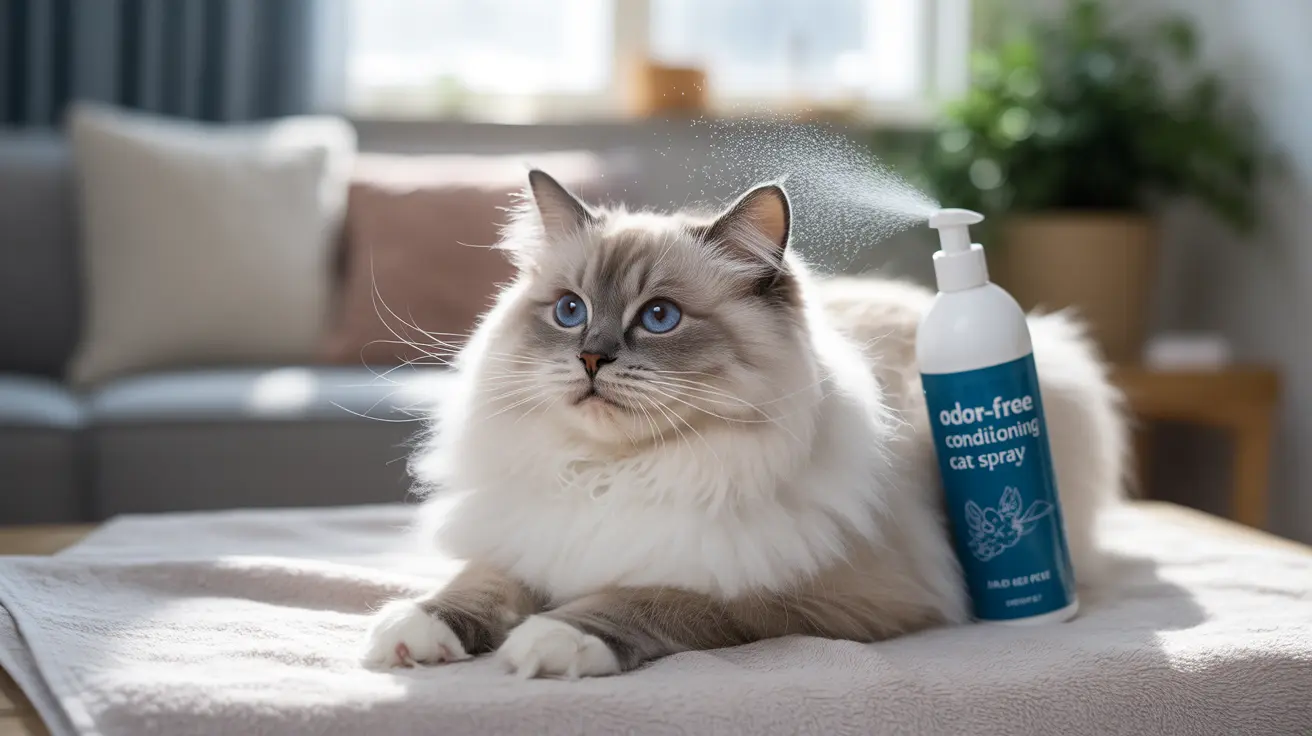Understanding Cat Conditioners and Their Purpose
Cat conditioners are specially formulated grooming products designed to moisturize, detangle, and enhance your cat's coat. Unlike human conditioners, these products are specifically pH-balanced for feline skin and contain ingredients that are safe if accidentally ingested during self-grooming.
These specialized products work by coating individual hair strands with moisturizing agents, making the fur smoother and more manageable while protecting the skin underneath.
Types of Cat Conditioners
Rinse-Out Conditioners
Traditional rinse-out conditioners are applied after shampooing and require thorough rinsing. These products provide deep conditioning and are ideal for cats with severe matting or those requiring intensive coat care.
Leave-In Conditioners
Leave-in formulas are perfect for maintenance between baths and can help with daily detangling. They're especially useful for long-haired cats prone to matting.
Spray Conditioners
Quick and convenient spray formulations are excellent for spot treatment and regular maintenance, making them ideal for cats who dislike water or need frequent touch-ups.
Key Benefits of Using Cat Conditioner
Regular use of cat conditioner offers numerous advantages for your feline companion:
- Reduces matting and tangling
- Decreases shedding and hairball formation
- Moisturizes dry skin
- Improves coat shine and texture
- Makes grooming sessions more comfortable
- Helps maintain skin health
Choosing the Right Cat Conditioner
When selecting a cat conditioner, consider these important factors:
- Your cat's coat type and length
- Any existing skin conditions
- Natural vs. synthetic ingredients
- Scented vs. unscented options
- Specific grooming needs (detangling, moisturizing, etc.)
Best Practices for Using Cat Conditioner
To maximize the benefits of cat conditioner while ensuring your pet's safety:
- Always use products specifically formulated for cats
- Test on a small area first to check for reactions
- Follow proper dilution instructions if required
- Rinse thoroughly when using wash-out products
- Apply conditioner in the direction of hair growth
- Pay special attention to prone-to-mat areas
Frequently Asked Questions
What is cat conditioner, and how does it benefit my cat's coat and skin?
Cat conditioner is a specialized grooming product that moisturizes, detangles, and protects your cat's coat and skin. It helps reduce matting, makes grooming easier, and can improve overall coat health and appearance.
How do I choose the best cat conditioner for different coat types and skin sensitivities?
Consider your cat's specific needs, including coat length, skin sensitivity, and any existing conditions. Look for hypoallergenic options for sensitive cats and deeper conditioning formulas for long-haired breeds.
Can cat conditioner help reduce matting, shedding, and hairballs in long-haired cats?
Yes, regular use of cat conditioner can significantly reduce matting and shedding by keeping the coat manageable and healthy. This, in turn, can help reduce hairball formation as less fur is ingested during grooming.
What are the risks of using cat conditioner, and how do I avoid irritation or toxicity?
Main risks include skin irritation and potential ingestion of product residue. To minimize risks, use cat-specific products, avoid over-conditioning, and ensure thorough rinsing when using wash-out formulas.
How often should I use cat conditioner as part of my cat's grooming routine?
Frequency depends on your cat's coat type and needs. Long-haired cats may benefit from weekly conditioning, while short-haired cats might only need monthly treatment. Always follow product instructions and monitor your cat's response.






